A day in the life of a cargo broker
“Being a cargo broker is challenging at times, but there’s something about the job that draws you in and keeps you coming back for more,” says our cargo managing director for Germany, Caroline Werf.
Caroline [pictured below] has been with ACS for over a decade, during which she’s helped facilitate hundreds of cargo flights. She explains what it's like being a cargo broker at ACS and what she and her team achieve for their clients.
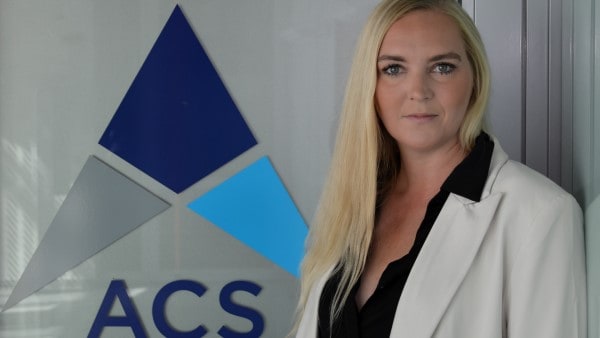
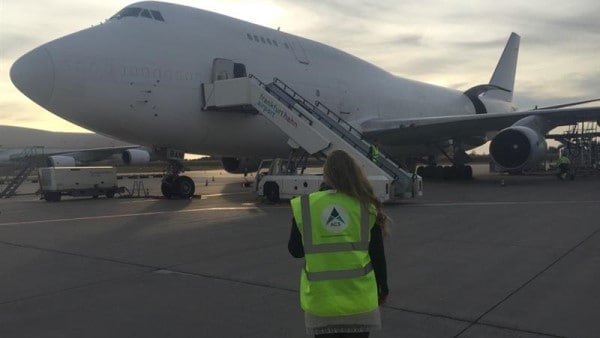
What does a cargo broker do?
Cargo brokers are problem solvers. When a cargo charter is needed, it’s usually because something needs to be transported at the last minute or to a remote location – and it's our job to get it from A to B as quickly and securely as possible.
We use our aircraft knowledge, industry connections and experience to find the ideal solution for each request. From humanitarian aid and search-and-rescue teams to machinery and live animals, we transport all sorts of cargo and can organise every aspect of a charter.
That begins with the choice of aircraft and, luckily for us, ACS’s global presence makes this part easier. From the giant Antonov An-124 to the versatile Cessna Caravan, we have access to thousands of cargo aircraft all over the world and can source the best available model for each customer’s unique requirements.
Another part of our job is organising all the logistics required by the customer, which can include documentation, trucking, packing and organising special loading equipment like cranes for heavy cargo. Our team is on the ground at the airport whenever possible to ensure everything runs smoothly, as well as being contactable 24/7 to facilitate any last-minute changes. It’s our job to ensure the cargo gets to its destination quickly and securely.
How does someone become a cargo broker?
As the word ‘broker’ suggests, many people who join our cargo division have a history of working in sales or customer service. But to be a successful cargo broker, it’s also helpful to have a passion for transport or aviation. You also need to thrive on being flexible – you might have to be at the airport at 3 am to ensure cargo is loaded onto an aircraft or deal with an urgent charter request at the weekend. Our industry never sleeps.
You don’t need to have prior knowledge of the air charter industry or be familiar with every type of aircraft. All of our cargo brokers receive mentorship at their local office and take classes at our London HQ. This helps our staff to start on the same footing while growing their international professional network.

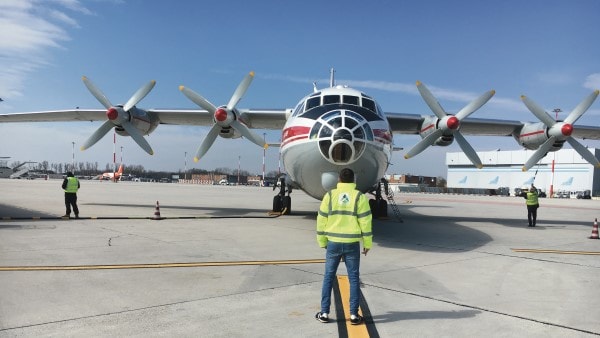
What personal qualities does a cargo broker need?
Flexibility is paramount, but persistence and determination are vital too. Every charter is different, so when obstacles arise you need to be creative and dedicated to finding a new solution. Being stress-resistant is also pretty important, as most of our customers need a quick turnaround, so you have to keep your cool and think clearly when up against the clock.
Finally, you should be comfortable talking to people and networking. A big part of this job is building relationships with customers and suppliers. You need to make a good first impression with key decision-makers and build trust over time.
What does a typical day look like for an ACS cargo broker?
That’s a hard one to answer, because no two days are the same! Even when I’m not working on a complex charter, there’s still plenty to do. A ‘normal’ day starts by checking my phone and emails for new inquiries and catching up on any ongoing charters. Even if I’m not working on a specific request, there’s always something to be done, such as touching base with regular clients or doing industry research.
If I’m handling a specific charter, I’ll be hard at work making sure all the documentation is completed, making calls to check the cargo’s progress, or ensuring all the necessary overflight and landing permits are in order. I also try to get to the airport to personally rectify any issues before take-off. I might then head back to the office thinking there’s time to work on a couple of projects, before another call comes in from a client needing a time-sensitive quote. You never know what’s going to happen.
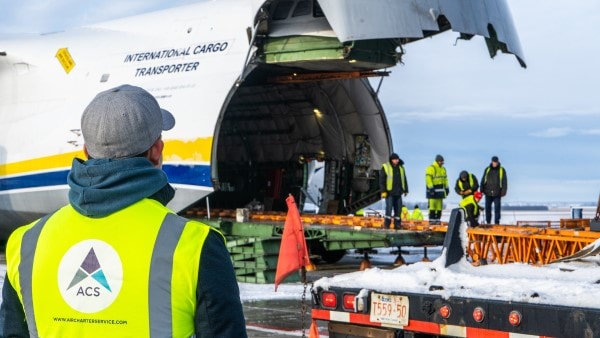

What are the differences between a cargo charter and private jet charter?
There are some similarities between cargo and private jet charters. Usually, our overall aim is to source an aircraft to transport something, or someone, as efficiently and cost-effectively as possible. Neither job is easier than the other – they’re both stressful at times.
In cargo, we don’t have to worry as much about things like onboard catering, adverse weather conditions or last-minute departure changes. For us, most of the hard work goes in before the day of departure.
Most of our customers want us to deal with every aspect of their cargo’s transportation, which can make things more logistically complex. We often find ourselves organising a truck or courier to collect the cargo and take it to the airport, before ensuring all the necessary checks and documentation are completed and overseeing as it’s loaded onto the aircraft.
Even when the cargo is loaded onto the aircraft and is on its way to its destination, sometimes, our work isn’t over. We may have to organise pick up at the airport and ground transportation to hand deliver it to the client.
What separates an ACS cargo broker from others?
This is a personable industry, so we ensure our clients always have someone they can talk to. From the moment they make their inquiry, a dedicated account manager is contactable 24/7 to handle any questions or last-minute changes. The same charter expert deals with each request from start to finish, so the client can rest assured their cargo is in trusted hands.
Our global network of offices also makes us stand out from many of our competitors. ACS has a presence in six continents, so wherever our clients are based, they can always find a charter expert with local knowledge of the cargo market in their region. As we often say here, we offer local knowledge on a global scale.
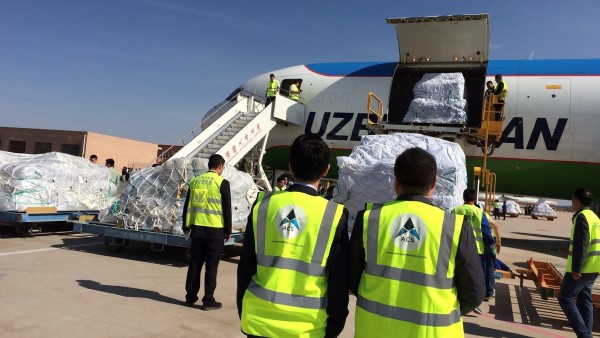

What’s been your favourite charter?
The charters that mean the most to me are generally those that involve delivering urgent aid to disaster zones. Of course, it always feels great when you complete any charter, but I’ve helped organise numerous relief missions over the past decade and it’s particularly special knowing my job can make a real impact on someone’s life.
If I had to choose one favourite charter, it would be helping to set a new world record, because it was so different from what we normally do. The client was attempting to complete ‘Cape to Cape 2.0’ by driving from South Africa’s southernmost point to the northernmost point in Norway, but security issues meant they needed a chartered flight to cross Syria.
The record attempt was planned down to the minute, so there couldn’t be any slip-ups or delays. I sourced an AN-74 aircraft that could fly all the cargo, the team and the car, a Volkswagen Touareg, from Amman in Jordan to Adana in Turkey. This was the shortest possible flight route to cross Syria by air. Due to our precise planning, it all went smoothly and the team went on to set a new record, completing their drive in 9 days, 4 hours, 9 minutes and 27 seconds.
What’s the best thing about being a cargo broker?
Being a cargo broker is challenging at times, but there’s something about the job that draws you in and keeps you coming back for more. No day is ever the same and I wake up every morning not knowing what’s to come. Just recently, I had a relatively quiet few days with time to catch up on a couple of projects, before receiving an urgent request in the early hours of the morning to help transport relief aid to Turkey following the devastating earthquakes in the region.
I’ve been involved in all sorts of charters over the years, from transporting live animals to moving washing liquid for a cruise ship, but I still don’t think I've seen it all. The industry is constantly changing and there’s always something new to learn, so there’s never a boring day.
Another benefit of being a cargo broker is the industry relationships you build along the way. Having a close working relationship with your clients and operators is important, but some of mine have turned into friendships, which has been a really pleasant bonus.
As well as friendships, the job also produces some incredible experiences. I will always remember one of my first-ever charters in 2013 when I got to fly on a B747 freighter that was carrying cargo to South Africa via Sudan. The preparation for this charter was intense, so it was so rewarding to be able to fly on the aircraft and see it all come together, ultimately meeting a satisfied customer at the cargo’s final destination. This was the moment when I knew I was going to be a cargo broker for years to come.
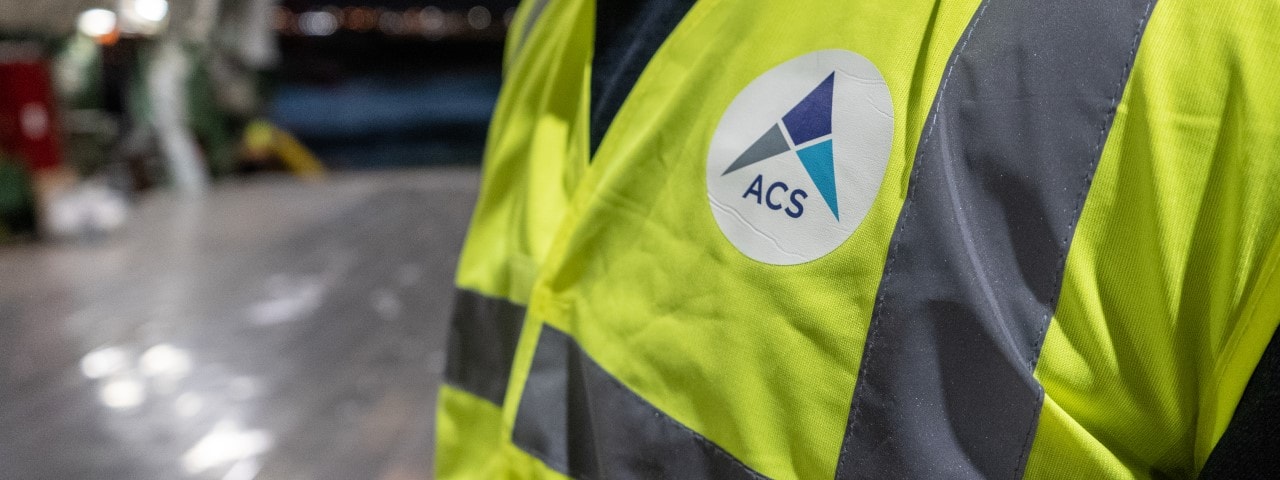
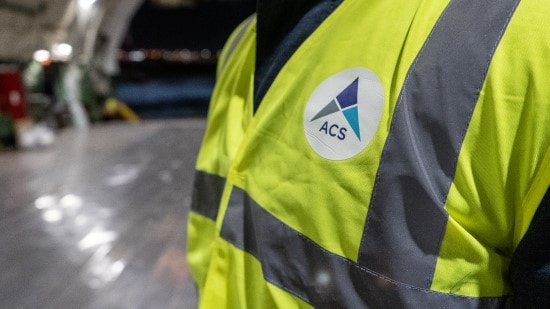 Caroline Werf has been with ACS for over a decade, during which she’s organised hundreds of cargo flights. She explains what it’s like being a cargo broker at ACS and what she and her team achieve for their clients.
Caroline Werf has been with ACS for over a decade, during which she’s organised hundreds of cargo flights. She explains what it’s like being a cargo broker at ACS and what she and her team achieve for their clients.

